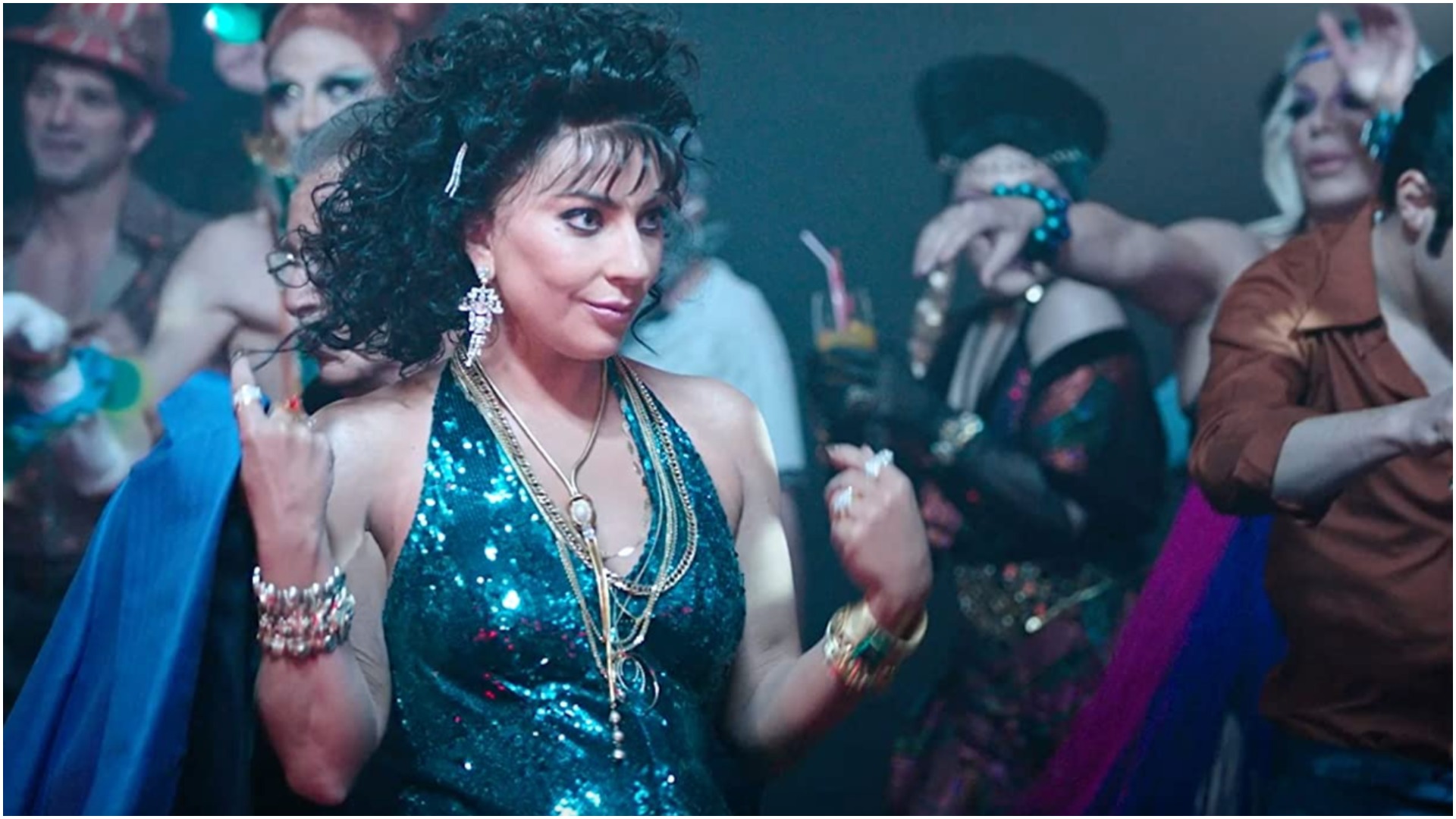GamesRadar+ Verdict
It’s not great Scott, but House Of Gucci still offers a fine excuse to vicariously experience the lifestyles of the rich and shameless.
Why you can trust GamesRadar+
Nothing exceeds like excess in Ridley Scott’s House of Gucci, a flashy, trashy chronicle of the iconic fashion house’s tumultuous fall and rise that runs the gamut from must-have accessories to accessories to murder.
Filled with wild couture, oversized performances, and all the gaudy trappings of opulent high living, it’s a guilty pleasure about deadly betrayal that is fittingly topped off by multiple guilty verdicts. For all its lavish, eye-catching, and occasionally retina-scorching moments, though, there is little sense of tragic pathos in a film that keeps its subjects and the world they operate in at a judgemental arm’s length. You are led, at times, to wonder what Sir Ridley saw in the project in the first place, given his clear disdain for its bickering antagonists and his distaste for the illusory power that they mutually and enviously covet.
Starting in 1995 with Adam Driver’s Maurizio Gucci cycling through Milan towards a fateful encounter on his office steps, House of Gucci backtracks to 1978 to reveal how this would-be lawyer and reluctant scion came to meet Lady Gaga’s Patrizia Reggiani, a truck driver’s daughter who sees him as her passport to untold luxury and riches.
Their romance does not please his snobbish father Rodolfo, a former actor played to the patrician hilt by a cravat-wearing Jeremy Irons. (Her card is marked the second she mistakes one of his Klimts for a Picasso and tells him her papa works in "ground transportation".) Yet Patrizia gets a much warmer welcome from Rodolfo’s brother Aldo (Al Pacino), who regards Maurizio as a more suitable heir for the family business than his own son Paolo (Jared Leto) – a buffoonish idiot with grandiose plans ("Gucci needs new ideas, new energy!"), persistent digestive issues and a gruesome taste for pastel-shaded corduroy.
Pacino’s Aldo is pure Prosciutto, whether he’s fawning obsequiously over Japanese shoppers ("They’re loyal, quiet, and rich!"), spinning tall tales about his ancestors’ links with medieval nobility or throwing an operatic wobbly on finding out he’s been outplayed.
Yet he’s nothing compared to Leto’s Paolo, a posturing ninny with a (prosthetic) bald pate the actor has seemingly modeled on a commedia dell’arte clown. The scene where his artistic pretensions are contemptuously torpedoed by Irons is a withering highlight ("A triumph of mediocrity… total incompetence!"), lent the coup de grace by Leto taking micturative revenge on one of his uncle’s cherished scarves.
And there is a ripe turn from Salma Hayek as Patrizia’s psychic accomplice Pina, a Tarot-reading spell-caster with a bird’s-nest thatch to match her cuckoo sensibility. (At one point the duo are seen literally wallowing in mud while partaking in some ritzy spa pampering.)
Driver is subtle in comparison, though he does nimbly chart Maurizio’s transformation from bumbling book-worm to polished CEO with chameleonic dexterity. Lady Gaga, meanwhile, goes the full mamma mia as his never knowingly underdressed wife, a force of nature whose jealousy overtakes her when Maurizio dumps her for a glam old flame (Camille Cottin) he runs into on the ski slopes.
From here, it’s a short distance to clandestine meetings with assassins for hire and a Godfather-style slaying. Yet screenwriters Becky Johnston and Roberto Bentivegna (working from Sara Gay Forden’s 2000 bestseller The House of Gucci: A Sensational Story of Murder, Madness, Glamour, and Greed) still manage to draw things out to 158 minutes, rarely wasting an opportunity to put Gaga in a spectacular frock (stunning work here from Gladiator Oscar winner Janty Yates), gift Maurizio a shiny new toy or have one Gucci stab another in both the front and the back.
Speedily shot in Italy earlier this year, House of Gucci offers an engrossing story but is let down by some dodgy CG plate work during its New York scenes and a general appetite for bombastic overkill that borders in places on the tasteless. At one point Maurizio and Patrizia are seen having energetic intercourse on a desk, a Showgirls-esque episode that segues to her walking down the aisle (in virginal white) to George Michael’s "Faith".
Elsewhere, a fiery marital argument leads to an unsavory bout of domestic abuse, generating sympathy for Gaga’s character she has otherwise done little to earn. Some of the script’s attempts at humor are also startlingly misjudged, not least a scene when Leto agonizes about his newly jailed father "dropping the soap" in prison.
"Never confuse shit with chocolato," says Paolo after his cousin has shown his true colors. "They may look the same, but they taste very different!" Despite its tonal missteps and O.T.T. indulgences, House of Gucci is always more chocolato than the alternative. Yet there are times it bears resemblance to a flea-market knock-off rather than the pricey real deal it so stridently seeks to emulate.
More info
| Genre | Thriller |
Neil Smith is a freelance film critic who has written for several publications, including Total Film. His bylines can be found at the BBC, Film 4 Independent, Uncut Magazine, SFX, Heat Magazine, Popcorn, and more.



